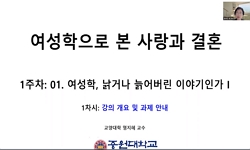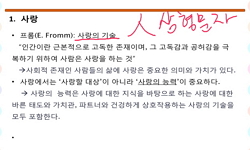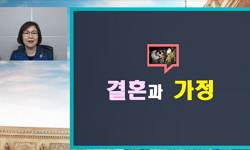이 글은 1970년대 낭만적 사랑의 지배 이념이 구체적 삶의 현장과 맞물릴 때 사회적 계급․계층에 따라 어떻게 다르게 전유되고 재현되었는지를 세 편의 대중서사 작품들을 대상으로 살펴보...
http://chineseinput.net/에서 pinyin(병음)방식으로 중국어를 변환할 수 있습니다.
변환된 중국어를 복사하여 사용하시면 됩니다.
- 中文 을 입력하시려면 zhongwen을 입력하시고 space를누르시면됩니다.
- 北京 을 입력하시려면 beijing을 입력하시고 space를 누르시면 됩니다.

계급과 로맨스 - 1970년대 대중 서사에 나타난 로맨스의 계층적 이질성 고찰 - = Love and the Class - A Study on the Hierarchical Heterogeneity of Romance in Popular Narratives of the 1970s -
한글로보기https://www.riss.kr/link?id=A109023217
-
저자
김지영 (대구가톨릭대학교)
- 발행기관
- 학술지명
- 권호사항
-
발행연도
2024
-
작성언어
Korean
-
주제어
The 1970s ; Dating ; Romance ; Love ; Marriage ; Sexuality ; Intimacy ; Choi In-ho ; Cho Seon-jak ; 「Yeongja’s heyday」 ; <It Rained Yesterday> ; Hunter in the City . ; 1970년대 ; 최인호 ; 조선작 ; 「영자의 전성시대」 ; <어제 내린 비> ; 도시의 사냥꾼 ; 청년문화 ; 연애 ; 결혼 ; 사랑 ; 낭만 ; 섹슈얼리티.
-
등재정보
KCI등재
-
자료형태
학술저널
- 발행기관 URL
-
수록면
259-296(38쪽)
- DOI식별코드
- 제공처
-
0
상세조회 -
0
다운로드
부가정보
국문 초록 (Abstract)
<어제 내린 비>는 70년대 청년문화를 구성했던 청년 세대의 낭만적 감수성을 비극적 사랑의 형태로 그려낸 작품이다. 한 여자를 사랑한 형제의 대립적 공존을 통해, 작품은 단독자적 자아로서 훼손된 세계와 맞섰던 청년세대의 분투하는 심리를 그려냈다. 영욱의 순수하고 이상주의적인 사랑과 영후의 육체적인 사랑의 대립은 투명한 이상과 쾌락주의적 소비문화라는 청년세대의 양면성을 사랑의 관계로 투영해 냈다. 작품의 비극적 종결은 완전한 순수도 완전한 쾌락도 허락하지 않는 세계에 속절없이 부딪히고 좌절하는 청년세대의 감성을 허무주의적 로맨스의 형상으로 그려냈다. 불능과 슬픔, 그럼에도 불구하고 존재하는 아련한 동경과 우울로 점철된 독특한 사랑의 정서는, 현실을 이길 수는 없지만 그에 굴복하지도 않으려 했던 청년 세대의 낭만적 욕망이 만들어낸 정치경제학의 산물이자, 생산하지 않는 자들의 소비문화가 구성한 쾌락에 대한 불안감의 결과였다.
도시의 사냥꾼은 중상류 계급을 횡단하는 사랑의 감각 속에 움트는 변화의 조짐을 초점화했다. 기혼녀의 사랑을 서사화한 이 작품은 결혼을 화려한 도시와의 거래로 표상하고, 혼외의 사랑에서 도시에 짓눌린 순수한 야성의 자유를 찾는다. 배우자들의 부도덕성을 배후로 벌어지는 이 혼외의 사랑은 기독교적 가르침의 목소리와 인물의 순도 높은 성찰성을 바탕으로 진행되며, 이를 통해 세속의 조건과 통념을 넘어 순수하게 자아의 욕망을 마주하는 선택의 문제로 사랑을 재인식하는 데로 나아간다. 사랑의 지속성과 안정성을 포기한 채 순도 높은 강렬도를 선택하는 새로운 유형의 거래를 실천하는 매우 이성적인 광기를 통해, 작품은 공리주의적 관점에 제한된 기성의 인식틀을 넘어 주체를 자기실현의 자율성으로 이끌어갈 수 있는 새로운 사랑의 인지적 가능성을 개방한다. 순수함의 순간성을 인정하며, 소모되고 탕진되는 감정을 통해 자기를 실현하고자 하는 새로운 사고의 등장은 현실적 이해와 낭만적 이상의 긴장 속에서도 차이와 개별성에 방점을 두며 더 많은 쾌락을 추구하고자 했던 중상계급의 로맨스 정치경제학의 결과였다.
이 글은 1970년대 낭만적 사랑의 지배 이념이 구체적 삶의 현장과 맞물릴 때 사회적 계급․계층에 따라 어떻게 다르게 전유되고 재현되었는지를 세 편의 대중서사 작품들을 대상으로 살펴보았다. 「영자의 전성시대」와 <어제 내린 비>(내 마음의 풍차), 도시의 사냥꾼은 각각 하층계급, 청년계층, 중상계급의 서로 다른 연애관과 사랑의 정치경제학을 보여준다. 하층민의 사랑을 다룬 「영자의 전성시대」에서, 물질적 결핍에 시달리는 노동계급 주인공은 매매춘 여성 영자에 대한 순수한 애정을 지배적 사랑의 이념과 절충하지 못함으로써 폭력적인 불통의 관계를 이어나간다. ‘나’의 애정은 성찰보다 충동에 기반하지만, 그럼에도 불구하고 영자에게 기울이는 헌신과 희생은 ‘나’가 누구보다도 신성하고 순수한 사랑을 실천하는 인물임을 보여준다. 무상의 헌신을 쏟아붓는 ‘나’의 순수한 애정은 그러나 지배적 사랑의 이념이 투사하는 관계의 시나리오를 탈피하지 못하고 자학과 폭력에 빠져든다. 이는 환경과 이념 사이에서 주체적 협상을 이루지 못한 채, 고정된 이념에 매여 있었던 하층계급의 로맨스 정치경제학의 비극을 확인해 준다.
<어제 내린 비>는 70년대 청년문화를 구성했던 청년 세대의 낭만적 감수성을 비극적 사랑의 형태로 그려낸 작품이다. 한 여자를 사랑한 형제의 대립적 공존을 통해, 작품은 단독자적 자아로서 훼손된 세계와 맞섰던 청년세대의 분투하는 심리를 그려냈다. 영욱의 순수하고 이상주의적인 사랑과 영후의 육체적인 사랑의 대립은 투명한 이상과 쾌락주의적 소비문화라는 청년세대의 양면성을 사랑의 관계로 투영해 냈다. 작품의 비극적 종결은 완전한 순수도 완전한 쾌락도 허락하지 않는 세계에 속절없이 부딪히고 좌절하는 청년세대의 감성을 허무주의적 로맨스의 형상으로 그려냈다. 불능과 슬픔, 그럼에도 불구하고 존재하는 아련한 동경과 우울로 점철된 독특한 사랑의 정서는, 현실을 이길 수는 없지만 그에 굴복하지도 않으려 했던 청년 세대의 낭만적 욕망이 만들어낸 정치경제학의 산물이자, 생산하지 않는 자들의 소비문화가 구성한 쾌락에 대한 불안감의 결과였다.
도시의 사냥꾼은 중상류 계급을 횡단하는 사랑의 감각 속에 움트는 변화의 조짐을 초점화했다. 기혼녀의 사랑을 서사화한 이 작품은 결혼을 화려한 도시와의 거래로 표상하고, 혼외의 사랑에서 도시에 짓눌린 순수한 야성의 자유를 찾는다. 배우자들의 부도덕성을 배후로 벌어지는 이 혼외의 사랑은 기독교적 가르침의 목소리와 인물의 순도 높은 성찰성을 바탕으로 진행되며, 이를 통해 세속의 조건과 통념을 넘어 순수하게 자아의 욕망을 마주하는 선택의 문제로 사랑을 재인식하는 데로 나아간다. 사랑의 지속성과 안정성을 포기한 채 순도 높은 강렬도를 선택하는 새로운 유형의 거래를 실천하는 매우 이성적인 광기를 통해, 작품은 공리주의적 관점에 제한된 기성의 인식틀을 넘어 주체를 자기실현의 자율성으로 이끌어갈 수 있는 새로운 사랑의 인지적 가능성을 개방한다. 순수함의 순간성을 인정하며, 소모되고 탕진되는 감정을 통해 자기를 실현하고자 하는 새로운 사고의 등장은 현실적 이해와 낭만적 이상의 긴장 속에서도 차이와 개별성에 방점을 두며 더 많은 쾌락을 추구하고자 했던 중상계급의 로맨스 정치경제학의 결과였다.
다국어 초록 (Multilingual Abstract)
<It Rained Yesterday> depicted the romantic sensibilities of the 1970s’ youth generation in the form of tragic love. The conflict between Young-wook’s idealistic love and Young-hu’s physical love projected the youth class’s duality and internal conflict of transparent ideals and hedonistic consumer culture into a love relationship. The work’s tragic and nihilistic love revealed anxiety about the pleasures created by the consumer culture of the generation that did not devote to produce social value. This could be said to be the result of the political economics of romance, which sought to preserve purity by escaping from reality.
The Hunter in the City focused on the signs of change burgeoning in the sense of love that crossed the middle/upper classes. This work, which narrated the love of a married woman, represented marriage as a deal with the modern city, and seek the freedom of pure wildness oppressed by the city in extramarital love. Through this, this work re-perceived love as a matter of choice that went beyond prevailed conditions and notions and purely confronted one’s own desires. Through a very rational madness that practiced a new type of transaction that chose pure intensity while giving up the continuity and stability of love, the work went beyond the established cognitive framework limited to a utilitarian perspective and leaded the subject to the autonomy of self-realization.
「Youngja’s Heyday」, <It Rained Yesterday>(Windmill in My Heart), and Hunter in the City showed the different views on love and the political economics of love among the lower class, youth class, and upper middle class, resp...
「Youngja’s Heyday」, <It Rained Yesterday>(Windmill in My Heart), and Hunter in the City showed the different views on love and the political economics of love among the lower class, youth class, and upper middle class, respectively. 「Youngja’s Heyday」 dealt with the love of a prostitute as an occupation that symbolized the contradictions of modern times that pursued asceticism in the field of production and hedonism in the field of consumption. The lower-class protagonist, suffering from material deprivation, was unable to compromise his pure affection for prostitute Yeong-ja with the dominant ideology of love. The pure affection of ‘I’, who poured out gratuitous devotion to Youngja, could not escape the relationship scenario projected by the dominant ideology of love. So he fell into masochistic love, violently abusing his partner and himself..
<It Rained Yesterday> depicted the romantic sensibilities of the 1970s’ youth generation in the form of tragic love. The conflict between Young-wook’s idealistic love and Young-hu’s physical love projected the youth class’s duality and internal conflict of transparent ideals and hedonistic consumer culture into a love relationship. The work’s tragic and nihilistic love revealed anxiety about the pleasures created by the consumer culture of the generation that did not devote to produce social value. This could be said to be the result of the political economics of romance, which sought to preserve purity by escaping from reality.
The Hunter in the City focused on the signs of change burgeoning in the sense of love that crossed the middle/upper classes. This work, which narrated the love of a married woman, represented marriage as a deal with the modern city, and seek the freedom of pure wildness oppressed by the city in extramarital love. Through this, this work re-perceived love as a matter of choice that went beyond prevailed conditions and notions and purely confronted one’s own desires. Through a very rational madness that practiced a new type of transaction that chose pure intensity while giving up the continuity and stability of love, the work went beyond the established cognitive framework limited to a utilitarian perspective and leaded the subject to the autonomy of self-realization.
동일학술지(권/호) 다른 논문
-
실패의 체험과 근대의 가능성 - 정지용 「유선애상」에 관한 소고 -
- 우리말글학회
- 이지상
- 2024
- KCI등재
-
분산분석을 이용한 체언류 어절구조 사용 특징에 대한 연구 -한국어 준구어 말뭉치를 중심으로-
- 우리말글학회
- 노성화
- 2024
- KCI등재
-
김삼불(金三不) 교주본(校註本) 『해동가요(海東歌謠)』의 편찬 맥락과 그 특성
- 우리말글학회
- 유정란
- 2024
- KCI등재
-
‘킹받다’와 ‘갓생’의 단어 형성 방식 연구 - ‘킹’과 ‘갓’ 형태소의 결합 특징을 중심으로 -
- 우리말글학회
- 박우빈
- 2024
- KCI등재




 KCI
KCI DBpia
DBpia






